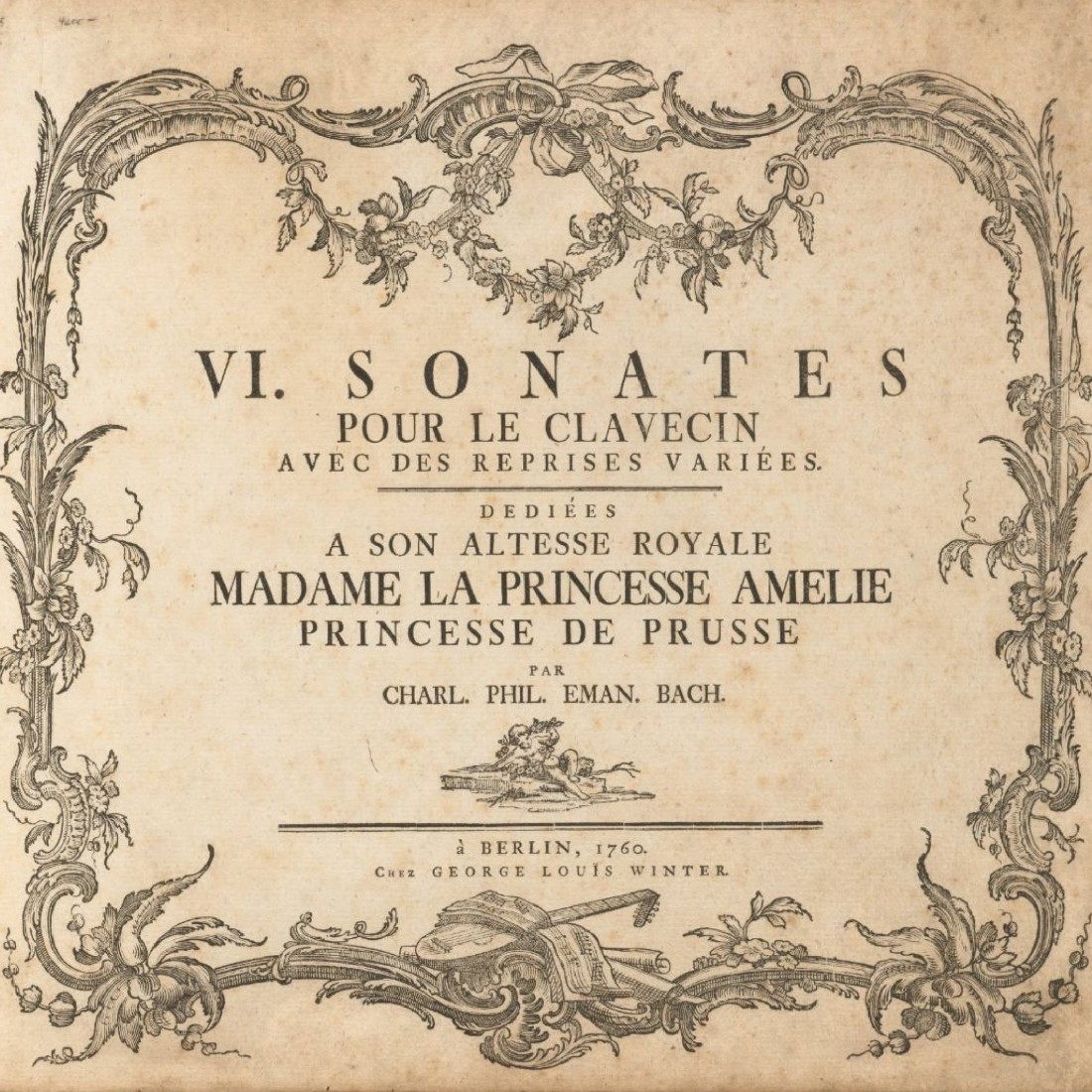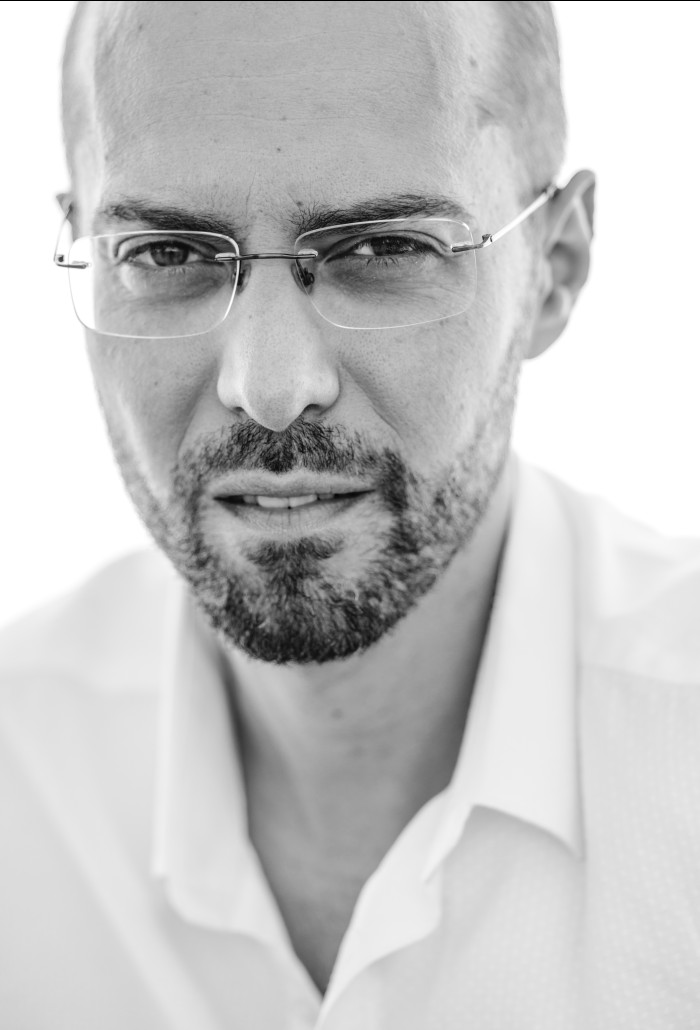
Datum en locatie
van 4 juli 2023 tot 13 juli 2023
Orpheus Instituut
Historical Piano Summer Academy 2023
Callvan 4 juli 2023 tot 13 juli 2023The Orpheus Institute announces its third Historical Piano Summer Academy.
MIT VERÄNDERTEN REPRISEN
MOZART AND C.P.E. BACH ON CLAVICHORD AND FORTEPIANO

Title page of C.P.E. Bach’s Sonaten mit veränderten Reprisen (Berlin, 1760)
In 1759, C.P.E. Bach writes a preface to a special new collection of sonatas: “Dès ce qu’on se répète aujourd’hui, & qu’on reproduit une chose, il est indispensable d’y faire des changemens.” “Making changes” is precisely what his Sonaten mit veränderten Reprisen, Wq. 50, do. Writing out every repeat, Bach indulges in embellishment and variation.

Johann August Rosmaesler, engraving in Franz Seydelmann, Sechs Sonaten für zwo Personen auf einem Clavier (Leipzig, 1781)
In 1775, Leopold Mozart asks J.G.I. Breitkopf (“the famous bookseller in Leipzig”) whether he might like to publish an opus of keyboard sonatas with varied repeats, “just like C.P.E. Bach’s.” Leopold is pitching the six “Munich Sonatas,” K. 279–284 of his nineteen-year old son, Wolfgang.
Academy
As we perform classical keyboard sonatas, do we too feel the pressure of variation? How do we partake in such a practice? A printed score of “Six Sonatas with Varied Repeats” by W.A. Mozart did not materialize. But what might it have looked like?
We will explore these questions during a ten-day workshop around two types of historical keyboards: a 1760s German-style clavichord and a 1786 Andreas Stein fortepiano. To assure sufficient time for hands-on experimenting, six instruments will be available: three clavichords by Joris Potvlieghe and three fortepianos by Chris Maene.
Through coaching, workshops, and seminars we will:
- Explore and compare playing techniques on the clavichord and Stein fortepiano, with special focus on Empfindsamkeit;
- Teach ourselves to improvise and compose in galant and classical styles;
- Gain a more intimate sense of Bach and Mozart as performer-composers;
- Contextualize the function, form, and performance of a keyboard sonata in a sight-reading culture;
- Read and discuss C.P.E. Bach’s Versuch über die wahre Art, das Clavier zu spielen (1753);
- Meet the makers of our instruments;
- Engage with scholarship on topics like the concept of an opus, the persona of composer-performer, or the materiality of performance;
- Make all these themes relevant for our performance.
Each participant will play one or more sonatas from C.P.E. Bach’s Wq. 50 as well as create and perform their own Mozart Sonata with Varied Repeats.
In addition to two concerts, on Thursday July 13 (which will be the final day of the Academy), you will have the opportunity of recording your Mozart sonata as part of a professional video production.
Faculty
This Third Orpheus Historical Piano Summer Academy is directed by
- Tom Beghin, Orpheus Instituut
- Juliane Brandes, Universität Mozarteum Salzburg
- Benjamin Steens, Conservatoire de Strasbourg
With contributions by
- Prach Boondiskulchok, Orpheus Instituut
- Luca Montebugnoli, Orpheus Instituut
- Anastasios Zafeiropoulos, Orpheus Instituut
Application
Please upload the following at https://airtable.com/shrRTV7bQIvVBTjxZ by April 3, 2023, 9:00 am:
- A one-to-two page document indicating why you wish to participate and what you expect from the experience.
- A link to one or two video clips featuring a performance of any pre-1800 piece on a historical keyboard that includes at least one example of a varied repeat; suggested total length: 15–20’.
- A copy of your CV.
- Your first, second, and third choice for a Mozart Sonata (K. 279, 280, 281, 282, 283, or 284).
Any questions may be addressed to summeracademy@orpheusinstituut.be
NEW
Applicants may now also apply for funding through COST Action “EarlyMusic”. Note that this is a double application: to be eligible you need to apply for the Historical Piano Summer Academy as well as for a COST Short Term Scientific Mission. Your motivation document may be the same for either application.
All info can be found here
Practical
Six participants will be selected on the basis of artistic level, commitment, and originality. The Orpheus Institute embraces diversity and strives to be an inclusive environment for everyone.
Selected participants will be notified by April 15, 2023, and will be invited to attend a Zoom meeting, to set some goals and to allow ourselves to prepare accordingly.
Presence during the full duration of the academy will be required.
Cost: € 500 as a registration fee, to be paid upon acceptance. You will be offered daily coaching, seminars, a performance stage, the opportunity to be recorded, as well as eight lunches and two evening dinners.
Accommodation: upon request, we can send suggestions, including possibilities for lodging with a local host.
This Academy will run in conjunction with HIPEX Summer Academy 2023.
Open workshops & concerts
Both the concerts & workshops are free to attend.
However, for the concerts, we kindly ask you to register here.
Tuesday July 11, 2023
Pyramid Hall, Koetshuis, Korte Meer 20A
9:00–12:45 Open masterclass Tom Beghin (Orpheus Institute), Juliane Brandes (Universität Mozarteum), and Benjamin Steens (Conservatoire de Strasbourg) 17:15 Drinks in the garden of D’Hane-Steenhuyse 18:00–19:15 Evening concert W.A. Mozart and C.P.E. Bach Sonatas with Varied Repeats, part one
Wednesday July 12, 2023
Royal Salon, D’Hane-Steenhuyse, Veldstraat 55, Gent
9:00–11:45 Open masterclass Tom Beghin (Orpheus Institute), Juliane Brandes (Universität Mozarteum), and Benjamin Steens (Conservatoire de Strasbourg) 12:00–12:45 Lunch concert Composing in late-eighteenth-century style 17:15 Drinks in the garden of D’Hane-Steenhuyse 18:00–19:15 Evening concert: W.A. Mozart and C.P.E. Bach Sonatas with Varied Repeats, part two
Download the PDF here.




